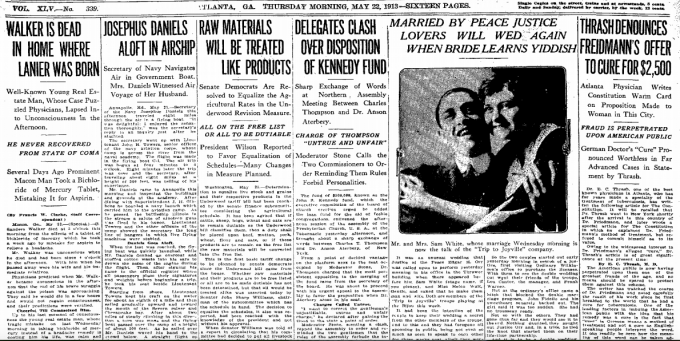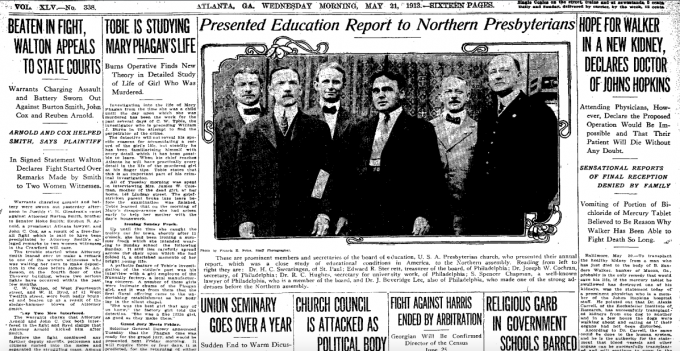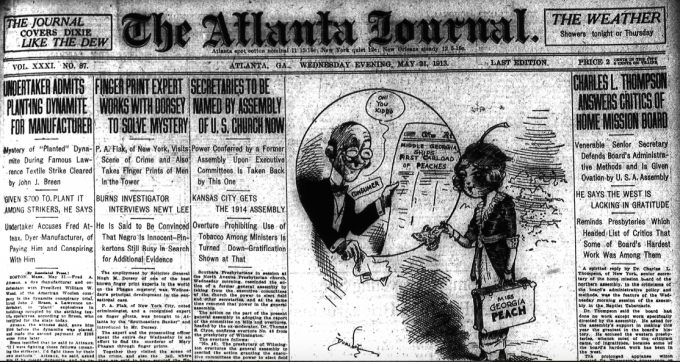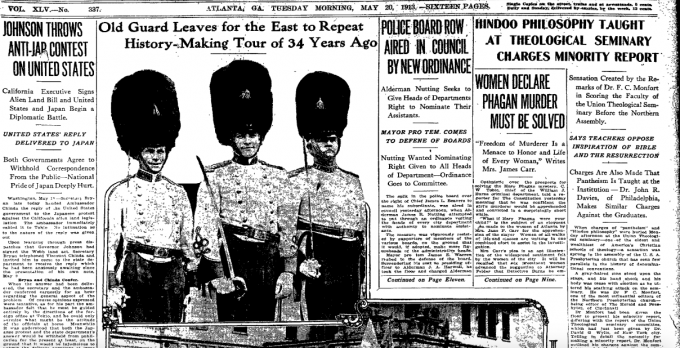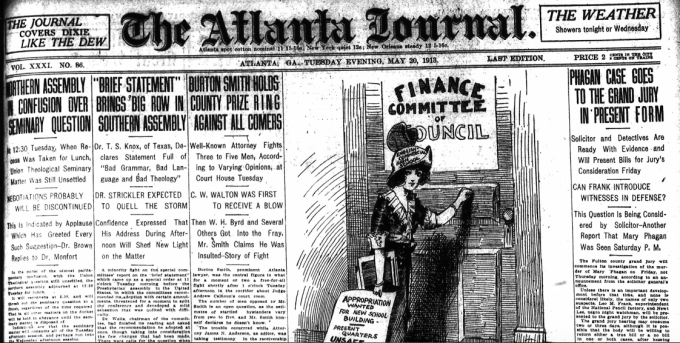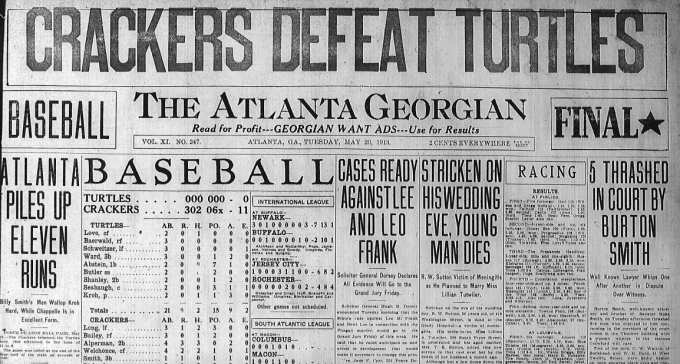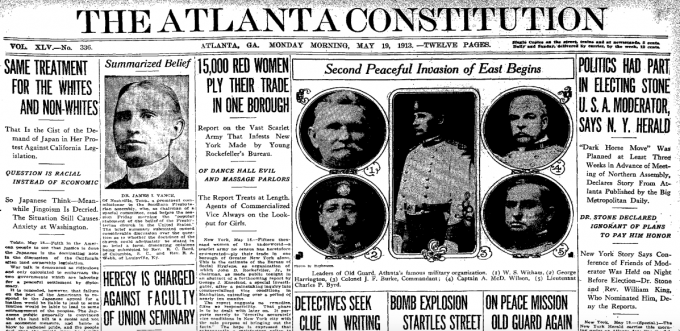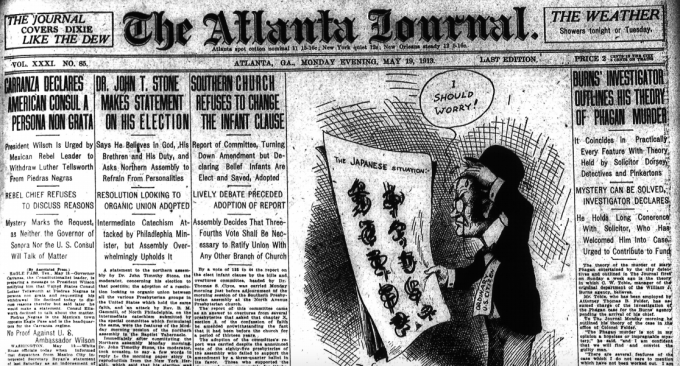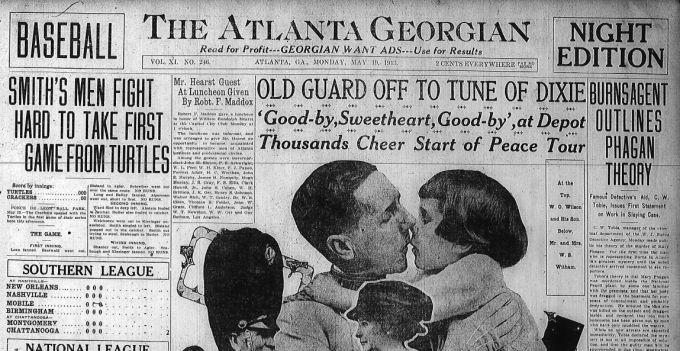Another in our series of new transcriptions of contemporary articles on the Leo Frank case.
Atlanta Constitution
Thursday, May 22nd, 1913
Two Investigators Are Added to Wm. J. Burns’ Forces Already in Atlanta—P. A. Flak in City.
The William J. Burns forces in the investigation of the Mary Phagan mystery have been reinforced by two expert investigators who recently arrived in the city and are assisting Chief C. W. Tobie in his work.
Their identity is being withheld. Both began work Wednesday. One is a noted handwriting and finger print expert, and his first object was to examine the notes found beside the girl’s body and to obtain finger prints at and around the scene of discovery.
Chief Tobie visited the negro night watchman, Newt Lee, in the Tower Wednesday morning for an hours’ interview. Although he will not state positively his views, the impression is gained that he believes the negro innocent, in both the actual murder and as an accessory either before or after the crime.
Finger Print Expert Engaged.
P. A. Flak, one of New York’s most successful finger print experts, has been retained by Solicitor General Dorsey to examine prints found upon the victim’s clothing and on the notes written by her slayer. Flak was brought to Atlanta by the Georgia State Banker’ association, the convention of which recently was held in Macon.
He and the solicitor visited the pencil factory Wednesday afternoon. Later they visited the jail, where, it is said, they secured finger prints from both suspects, Frank, the plant superintendent, and the negro watchman. They spent practically the entire day together. Continue Reading →

